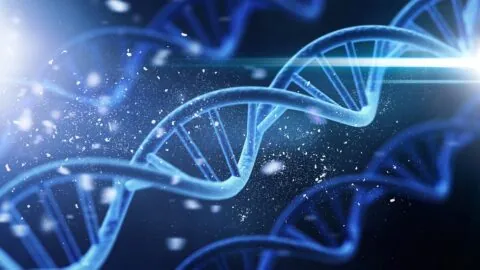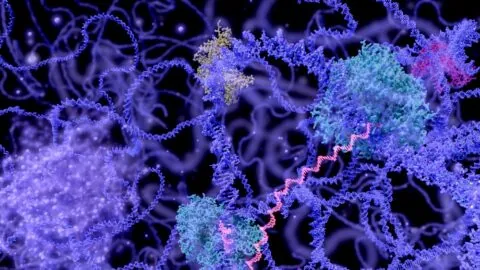October 13, 2025
In Aging Cell, researchers have described core genes that apply to a wide variety of species and appear to be causal drivers of aging. Looking for signals in the noise Introducing their study, the researchers note that gene expression changes are difficult to interpret because they occur across a panoply of genes and the strongest...
August 28, 2025
In Aging Cell, researchers have reported that chromatin demethylation allows SASP compounds to be more easily expressed. Chromatin and gene expression Cellular SenescenceAs your body ages, more of your cells become senescent. Senescent cells do not divide or support the tissues of which they are part; instead, they emit potentially harmful chemical signals, collectively known...
July 09, 2025
Researchers have analyzed molecular patterns from different tissues obtained from over 700 people and learned that smoking acts as an aging accelerator and involves molecular changes in tissues beyond those directly exposed to cigarette smoke [1]. Millions of preventable deaths Despite campaigns aimed at the reduction of tobacco smoking, it is still a very common...
May 22, 2025
In Aging Cell, researchers have found that exposing ordinary Black 6 mice to a more natural environment accelerates rather than slows the aging of their livers. When natural doesn't mean better It is a well-known fact that laboratory animals live in controlled conditions beyond that of wild animals or even most pets. Temperature and food...
April 02, 2025
Using a mouse model, researchers from UCSF have found that the genes that become activated on the silent X chromosome might explain some sex-dependent differences in cognitive abilities during aging [1]. XX and XY It is widely known that women live longer than men [2]. Women also show differences in cognitive aging [3]. "In typical...
March 26, 2025
A recent study reported significant associations between increased heat days and accelerated epigenetic aging [1]. Heat alters DNA While warm summer days on the beach are pleasant, extreme heat is not as enjoyable, especially in daily life. It is also not healthy, since extreme heat has been linked to cardiovascular diseases and death [2, 3]....






